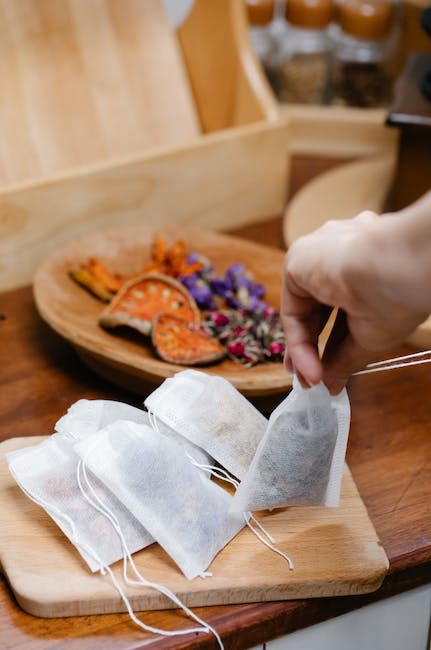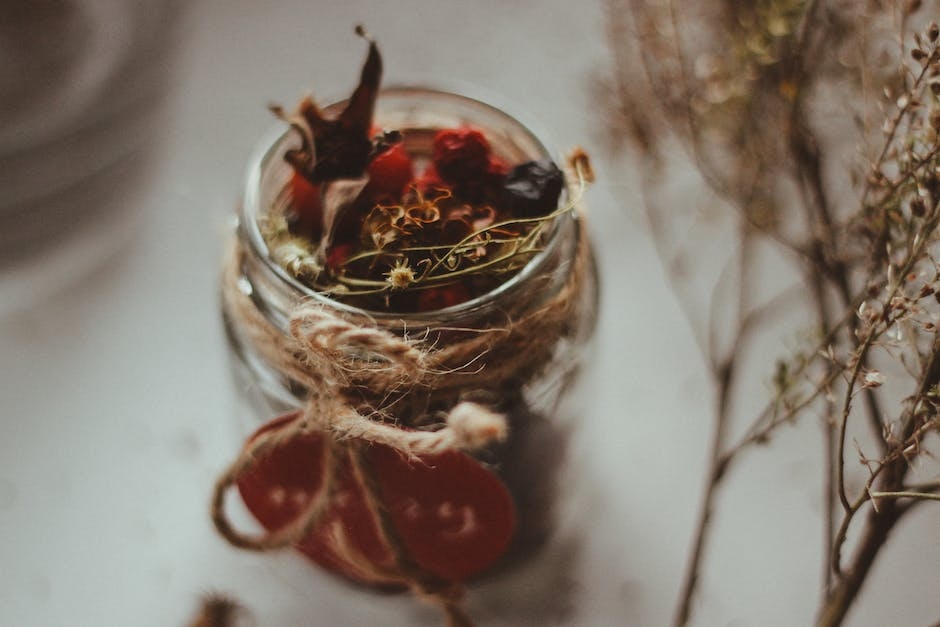Introduction to Dandelion Tea
Welcome, tea lovers! Today, we are going to explore the wonderful world of dandelion tea. If you’ve never heard of this unique and powerful beverage, prepare to be amazed. Dandelion tea is not your average cup of tea; it’s like a hidden gem waiting to be discovered.
For centuries, dandelion tea has been enjoyed in various cultures around the world for its numerous health benefits and unique flavor. Whether you’re looking to improve your overall well-being or simply want to try something new, dandelion tea is definitely worth considering.
So, what exactly is dandelion tea? Well, let’s dive in and find out!
Dandelion tea is made from the leaves, flowers, and roots of the dandelion plant. Yes, you read that right – the same dandelion that grows in your backyard and is often considered a pesky weed. But don’t let its humble appearance fool you; this plant is packed with nutrients and health-promoting properties.
While dandelion tea may not be as popular as green or black tea, it certainly holds its own when it comes to health benefits. From aiding digestion to supporting liver health, dandelion tea has a lot to offer. And the best part? It’s all natural and caffeine-free!
Now that we have a basic understanding of what dandelion tea is, let’s take a closer look at its main ingredient – the dandelion plant itself. Get ready to be amazed by the power and versatility of this little yellow flower!
The Main Ingredient of Dandelion Tea
When it comes to dandelion tea, the star of the show is undoubtedly the dandelion plant itself. Known scientifically as Taraxacum officinale, dandelions have long been used for their medicinal properties and culinary purposes.
The dandelion plant consists of several different parts, all of which can be used to make dandelion tea. The most commonly used parts are the leaves, flowers, and roots. Each part adds a unique flavor and brings its own set of health benefits to the table.
Dandelion Leaves:
The leaves of the dandelion plant are bright green and have a slightly bitter taste. They are known for their high content of vitamins A, C, and K, as well as minerals like calcium and potassium. These nutrient-rich leaves are often used in salads and can also be dried and brewed into dandelion tea.
Drinking dandelion tea made from the leaves can offer a myriad of health benefits. It can help support digestion, aid in detoxification, and even promote healthy skin. The leaves are also packed with antioxidants, which help fight free radicals and protect against cell damage.
Dandelion Flowers:
The bright yellow flowers of the dandelion plant are not just pretty to look at; they also have their own set of health benefits. Dandelion flowers are rich in antioxidants and flavonoids, which have been shown to have anti-inflammatory and anti-cancer properties.
For dandelion tea, the flowers are often harvested when they are fully bloomed and then dried. When brewed, the flowers impart a slightly sweet and floral taste to the tea. Drinking dandelion tea made from the flowers can help soothe inflammation, support liver health, and boost the immune system.
Dandelion Roots:
Lastly, we have the dandelion roots, which are known for their strong and bitter taste. The roots are often harvested in the fall when the plant has stored up nutrients for the winter. They are then dried, roasted, and ground to be used in dandelion tea.
Drinking dandelion tea made from the roots can have a variety of health benefits. The roots are known for their liver-detoxifying properties and may also support healthy digestion. Additionally, the roots contain inulin, a type of dietary fiber that can promote gut health.
Now that we’ve explored the main ingredient of dandelion tea, it’s time to move on and discover the other ingredients that can be added to enhance both the flavor and the health benefits of this amazing beverage.
Other Ingredients in Dandelion Tea
While the dandelion plant itself is the main ingredient in dandelion tea, there are several other ingredients that can be added to enhance both the flavor and the health benefits of this delightful beverage. These additional ingredients bring their own unique qualities, making each cup of dandelion tea a delightful experience.
Ginger:
One popular addition to dandelion tea is ginger. Known for its warm and spicy flavor, ginger adds a delightful kick to the tea. Not only does ginger provide a flavor boost, but it also brings its own set of health benefits to the table.
Ginger is well-known for its anti-inflammatory properties and is often used to relieve digestive discomfort. It can help soothe an upset stomach, reduce nausea, and even alleviate muscle pain. Adding a slice of fresh ginger root or a sprinkle of ginger powder to your dandelion tea can give it an extra zing while boosting its potential health benefits.
Lemon:
If you prefer a citrusy twist to your tea, adding fresh lemon slices or a squeeze of lemon juice is a great option. Lemon not only adds a refreshing flavor to dandelion tea but also brings a host of health benefits to the mix.
Lemons are rich in vitamin C, which is known to support immune health. They also contain antioxidants that can help fight oxidative stress and inflammation. Additionally, lemon juice may aid in digestion and help detoxify the body. So, don’t shy away from adding a little zest to your cup of dandelion tea.
Honey:

For those with a sweet tooth, a drizzle of honey can be the perfect addition to dandelion tea. Honey not only adds a touch of sweetness but also provides its own health benefits.
Honey has antioxidant and antibacterial properties, making it a great natural remedy for soothing sore throats and coughs. It may also have anti-inflammatory effects and can be beneficial for wound healing. Just be sure to choose a high-quality, raw honey to reap the most benefits.
Cinnamon:
If you enjoy warm and comforting flavors, adding a pinch of ground cinnamon to your dandelion tea can be a game-changer. Cinnamon not only adds a delightful aroma and flavor but also offers its own array of health benefits.
Cinnamon is known for its anti-inflammatory and antioxidant properties. It may help regulate blood sugar levels, improve heart health, and even boost brain function. So, spice up your dandelion tea with a dash of cinnamon for an extra dose of goodness.
Now that we’ve explored the various ingredients that can be added to dandelion tea, it’s time to move on and discover the health benefits of this amazing beverage.
Health Benefits of Dandelion Tea Ingredients
Dandelion tea is not only a delightful and flavorful beverage but also packed with a wide range of health benefits. Let’s take a closer look at the key ingredients in dandelion tea and the ways in which they can contribute to your overall well-being.
Dandelion Leaves:
The dandelion leaves used in dandelion tea are rich in vitamins A, C, and K, as well as minerals like calcium and potassium. These nutrients, along with their high antioxidant content, contribute to several health benefits.
Vitamin A is essential for maintaining healthy vision, skin, and immune function. Vitamin C is a powerful antioxidant that helps protect against free radicals and supports immune health. Vitamin K is important for blood clotting and bone health, while minerals like calcium and potassium are essential for strong bones and proper muscle function.
Dandelion leaves also contain compounds called bitter glycosides, which can stimulate digestion and support liver function. They may help with detoxification and promote overall digestive health.
Dandelion Flowers:
The dandelion flowers used in dandelion tea are not only visually appealing but also offer their own health benefits. These bright yellow flowers are rich in antioxidants and flavonoids, which have anti-inflammatory and immune-boosting properties.
The antioxidants in dandelion flowers help protect against oxidative stress and cellular damage caused by free radicals. This, in turn, may help reduce the risk of chronic inflammation and various diseases.
Additionally, dandelion flower tea may support liver health by promoting the production and flow of bile, which aids digestion and helps remove toxins from the body. It may also have diuretic properties, helping to flush out excess water and toxins from the kidneys.
Dandelion Roots:
The dandelion roots used in dandelion tea are known for their bitter taste. However, they also bring a host of health benefits to the table.
Dandelion root tea is often used to support liver health and aid in detoxification. The compounds found in the roots can promote the production and flow of bile, helping the liver effectively eliminate toxins from the body.
Moreover, dandelion root tea may have a diuretic effect, helping to increase urine production and flush out toxins through the kidneys. This can be particularly beneficial for individuals who struggle with water retention or urinary tract issues.
The roots also contain inulin, a type of prebiotic fiber that can promote the growth of beneficial gut bacteria and support a healthy digestive system. Inulin acts as a food source for probiotics, aiding in gut health and potentially improving digestion and nutrient absorption.
By combining these powerful ingredients, dandelion tea offers a wide range of health benefits, ranging from supporting digestion and liver health to providing essential nutrients and antioxidants. Now, let’s move on to the final section and discover how you can make this amazing tea at home.
How to Make Dandelion Tea with These Ingredients
Now that you’re eager to try dandelion tea, let’s dive into the process of making this delightful beverage right in the comfort of your own home. It’s surprisingly simple, and you can customize it to your taste preferences by incorporating the various ingredients we’ve discussed.
Ingredients:
- 2 tablespoons of dried dandelion leaves
- 1 tablespoon of dried dandelion flowers
- 1 teaspoon of dried dandelion roots
- Optional ingredients: ginger slices, lemon slices, honey, cinnamon
- 3 cups of water
Instructions:
- Start by bringing the water to a boil in a saucepan.
- Add the dried dandelion leaves, flowers, and roots to the boiling water.
- If desired, you can also add a few slices of ginger or lemon to enhance the flavor.
- Reduce the heat to low and let the mixture simmer for about 10-15 minutes.
- After simmering, remove the saucepan from the heat and let it steep for an additional 5 minutes.
- If you prefer a sweeter taste, you can add a drizzle of honey at this stage. Likewise, if you enjoy a hint of cinnamon, add a pinch now.
- Once steeped, strain the tea mixture into a teapot or individual cups.
- Your homemade dandelion tea is now ready to be enjoyed!
Feel free to experiment with different ingredient combinations and ratios to find the perfect blend that suits your taste buds. Some individuals prefer a stronger taste and may choose to increase the amount of dandelion roots, while others may prefer a milder flavor by reducing the quantity.
Remember, dandelion tea can be enjoyed both hot and cold. If you prefer it cold, simply pour the strained tea over ice and add a slice of lemon or a sprig of mint for an extra refreshing twist.
With just a few simple steps, you can now indulge in the delightful and health-promoting goodness of homemade dandelion tea. So, grab your ingredients, get brewing, and savor each sip of this unique and powerful beverage.
Before we wrap up, let’s do a quick recap of what we’ve learned about dandelion tea and its benefits.


Leave a Reply